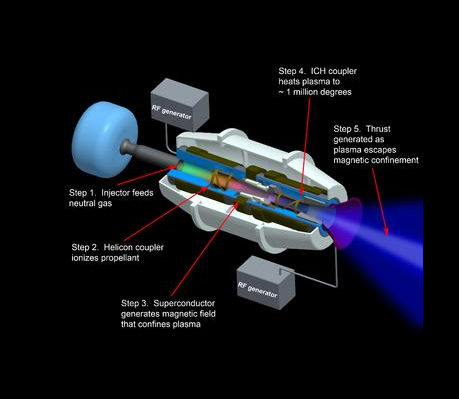It is estimated, the amount of time and investment necessary to build 550,000 electric vehicle charging stations throughout the United States will take 5-8 years with a $10 Billion capital investment. While the commercially available plasmoid fusion engines will be in use for vehicles, aircraft and spacecraft by 2030.
CLEVELAND - April 23, 2023 - PRLog -- There is still a lot of research that needs to be done before plasmoid engines can be used to generate electric power on a commercial scale. However, the potential benefits of these engines are significant, and they could play an important role in the future of energy production.The world is very close to achieving major commercial breakthroughs in plasma fusion engines that will produce a 100% sustainable clean energy emitting zero waste and no pollution. For example, imagine if you had a small Plasmoid Fusion Engine in your electric vehicle that provides the sustainable clean energy to power it writes J Dean. And in fact, several large companies are already testing plasma fusion engines now.
So what are "Plasmoids"? Plasmoids are self-contained, electrically charged structures that can exist in a plasma, which is a state of matter consisting of ionized gas. They are also known as plasma balls or plasma vortex rings. Plasmoids vary in size from microscopic to several meters in diameter, and may exhibit a wide range of behaviors, including rotation, oscillation, and propagation. And plasmoids produce an abundant source of sustainable clean energy generated by isotopes, organic elements found in our bodies and nature.
Plasmoids are contained in smaller eliminating the need for a large tokamak machine. A plasmoid is a small, localized region of plasma that is magnetically confined. They can form in tokamaks and other types of fusion devices. Plasmoids are typically a few centimeters in size, while tokamaks can be tens of meters in size.
The length of time that a plasmoid engine could generate electric power depends on a number of factors, including the size of the plasmoid, the strength of the magnetic field, and the amount of fuel available. In theory, a plasmoid engine could generate electric power for an indefinite period of time, as long as there is fuel available to sustain the plasma. However, in practice, there are a number of challenges that would need to be overcome in order to achieve this goal. For example, the plasmoid would need to be kept stable and confined, and the magnetic field would need to be strong enough to prevent the plasma from escaping.
Today, companies such as Ad Astra's plasma VASIMR engines developed over 30 years with NASA, and led by Franklin Chang-Díaz a Costa Rican-born American mechanical engineer, MIT PhD plasma physicists and former NASA astronaut, Google, Helion Energy and Cummins Inc. hold patents in plasmoid technologies nearing public commercial use. So, we're on the verge of game changing sustainable clean energy now.
It is estimated, the amount of time and investment necessary to build 550,000 electric vehicle charging stations throughout the United States will take 5-8 years with a $10 Billion capital investment. While the commercially available plasmoid fusion engines will be in use for vehicles, aircraft and spacecraft by 2030.
So why not just invest the entire $10 Billion to accelerate plasmoid fusion engine technology, just a few centimeters in size, able to fit in most vehicles, thus eliminating the need for fossil fuels, EV batteries and recharging stations? Read Full Article Click Here https://www.theconsciousword.com/post/plasmoid-engine-fusion-plasma-reactors
Contact
J Dean
***@socialcontentservice.com
Photos: (Click photo to enlarge)
Read Full Story - Fossil Fuels EV Batteries Recharging Stations versus Plasmoid Fusion Engine | More news from this source
Press release distribution by PRLog
Fossil Fuels EV Batteries Recharging Stations versus Plasmoid Fusion Engine
April 23, 2023 at 11:09 AM EDT